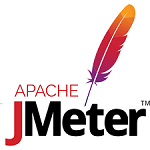
Testing is an essential part of the software development process and is highly complex. That’s why testing tools are necessary to help manage and document the software testing process.
Get Free Demo: Best Test Management Tools in 2020
Whether it is about managing test cases, reporting bugs, designing and executing reports, and more, a test management tool can do it all. To help you choose the right one, we have laid out the top 14 free and open source testing tools that you can check out.
Best Open Source Testing Tools
1. Selenium

Selenium is one of the best open-source testing tools that provide a wide range of testing solutions. The best part is that its compatible with all the main browsers and operating systems, along with a list of several programming languages.
Features
- Easily integrates with various development platforms, including Maven, SauceLabs, Jenkins, TestNG, QMetry, SauceLabs, etc.and more
- Has an easy-to-use and intuitive interface
- Allows you to perform testing on almost every kind of UI component
Pros
- Supports mobile testing
- Unmatched flexibility
Cons
- No built-in image comparison
2. Appium

Appium is another popular open-source testing tool that is best suited for testing native, hybrid, and mobile web apps. It gives you full access to back-end APIs and DBs from test code. Besides, it gets you started in no time. It is quite easy to set up and offers a clean interface.
Features
- Supports multiple programming languages like python, java, ruby, C#, and more
- Easily manage the tool via the command line through an extensive set of parameter
Pros
- Huge community support
- Supports multiple frameworks
Cons
3. JMeter

JMeter is a popular open-source testing tool that aids in examining the functional software performance of web applications. Using the tool, you can run tests on several servers, including JMS, SOAP, HTTP, HTTPS, and POP3. Furthermore, it is compatible with different browsers, as well.
Features
- Can be tested for both the static and dynamic resources
- Enables you to perform multithreading through its simple and faster interface capabilities
Pros
- Easy to use and install
- Highly extensible
Cons
- Poor reporting and analytic functionality
4. WatiN

WatiN, or Web Application Testing in .NET, is an open-source family of Ruby libraries that helps in test web applications. You can smoothly run it on major platforms, such as Internet Explorer, Opera, Firefox, Chrome, and Safari. Besides, during testing, it enables you to create screenshots of WebPages.
Features
- Support Ajax Website Testing and can be used with any .NET language
- Can be easily integrated with your favorite Unit Testing Tool
Pros
- Easy to read syntax
- Automates all the HTML elements
Cons
5. SoapUI

SoapUI is one of the top leading API testing tools used by renowned companies to adequately review the functionality of their protocols. Some of its wide range of functionality includes development, web service inspection, functional testing, simulation and mocking, load, and compliance testing.
Features
- Offers detailed API test reporting to improve testing and measure success
- Lets you test faster and smarter with data-driven testing
Pros
- User-friendly interface
- High-speed performance
Cons
- MockResponse module needs to be more enhanced
Also, Read: 15 Best Structured Data Testing Tools to Boost Traffic
6. Capybara

Capybara is an open-source test automation tool that enables you to examine web-based applications. It can simulate how a real user would interact with your app and is written in the Ruby programming language.
Features
- Enables you to carry out asynchronous processes in no time with its robust synchronization features
- Doesn’t require any setup for Rails and Rack application
Pros
- Has user-friendly Domain Specific Language (DSL)
- Intuitive API
Cons
7. Tarantula

Another best open source testing tool is Tarantula, which is particularly used for managing software testing in agile software projects. One of its significant advantages is that it offers a real-time dashboard view and reporting for managers to stay in the loop on the progress of the testing process.
Features
- Allows you to execute tests based on tags and smart tags
- Supports seamless integration with Bugzilla, JIRA, and Doors
Pros
- Easy-to-use and intuitive interface
- Case version history
Cons
- Not an active support community
8. TestLink

TestLink is a popular web-based test management tool that offers a wide range of functionality. Some of these include planning test case creation and maintenance, bugs tracking, tets runs, and requirement tracking.
Features
- Seamlessly integrates with several other issue tracking tools
- It is highly customizable because of user-definable Custom Fields
Pros
- Updating test cases is flexible
- Supports mapping the requirements
Cons
- Email notification is not available
9. Espresso

Espresso is a testing tool designed for Android applications. What makes it stand apart is that it provides automatic synchronization of test actions with the UI of the app you are testing. Besides, it can simulate user interactions within a single target app.
Features
- Allows you to easily write brief and reliable test cases by testers
- Aids in writing concise and dependable UI tests
Pros
- Powerful and flexible
- Small and user-friendly API
Cons
- Test needs to be re-written for iOS platform
10. FitNesse

FitNesse is an open-source testing tool based on Ward Cunningham’s Framework for Integrated Test. It allows testers and developers to collaborate and create test cases on wiki servers. The best thing is that it works well with almost all programming languages.
Features
- It is quite lightweight and can be run from a desktop
- Specifications or requirements can be used as test input
Pros
- Easy to use and set up
- Extremely adaptable
Cons
11. Grinder

One of the most popular free testing tools is Grinder, a JavaTM load testing framework. This open-source tool is designed to help you run a distributed test using many load injector machines. Besides, it offers flexible scripting — tests are written in the powerful Jython scripting language.
Features
- Can run a test through major platforms like Windows, Mac, and Linux
- Has a built-in reporting functionality
Pros
- Highly customizable
- Easy to use and install
Cons
- Does not record HTTPS traffic
12. Gatling

Gatling is one of the most trusted open-source testing tools used by some of the top leading companies, like Adobe and Deutsche Bank. Its framework is based on Scala, Akka, and Netty. It is a load testing tool that helps analyze and measure the performance of a variety of services. However, its main focus is web applications.
Features
- Integrates seamlessly with your project structure
- Generates reports that are easy to read and understand
Pros
- High performance
- Ready-to-present HTML reports
Cons
- Adapting to a new tool takes time
13. Multi-mechanize

Multi-mechanize is an open-source framework of performance and loading tests that runs concurrent Python scripts to generate load. It is most often used to test web performance and scalability, but it can also load test any remote API via Python.
Features
- Considered as a simple yet powerful testing tool
- Offers much flexibility as it is written in Python code
Pros
- Easy to install and use
- Provides detailed reports
Cons
- Test keeps running unless you stop it
14. XCUITest

XCUITest is an emerging open source testing tool specially designed for iOS applications. It provides feature-rich software testing capabilities to enhance the stability of the software. What’s more, its UI testing framework is built on top of XCTest.
Features
- Can write tests in Swift or Objective C
- Can support several standard Appium functionalities
Pros
- Seamless integration
- Native iOS Language Support
Cons
- No Cross-Platform Support
Conclusion
So that was the end of our list of the top free and open source testing tools you can check out. Always choose the one that fits your business needs and develop a highly-efficient software.
Get started!
Need Any Technology Assistance? Call Pursho @ 0731-6725516




